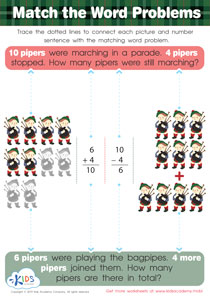Addition skills Normal Addition Worksheets for Ages 5-9
8 filtered results
-
From - To
Enhance your child's math journey with our Addition Skills Normal Addition Worksheets, designed specifically for ages 5-9! These engaging worksheets provide a solid foundation in basic addition concepts through fun, interactive activities. Crafted to support early learners, our resources gradually progress in difficulty, helping children develop confidence and proficiency in adding numbers. With colorful visuals and age-appropriate exercises, kids will enjoy practicing essential math skills while building a strong base for future learning. Perfect for classroom use or at-home practice, these worksheets make mastering addition an enjoyable experience. Start cultivating math success for your young learners today!
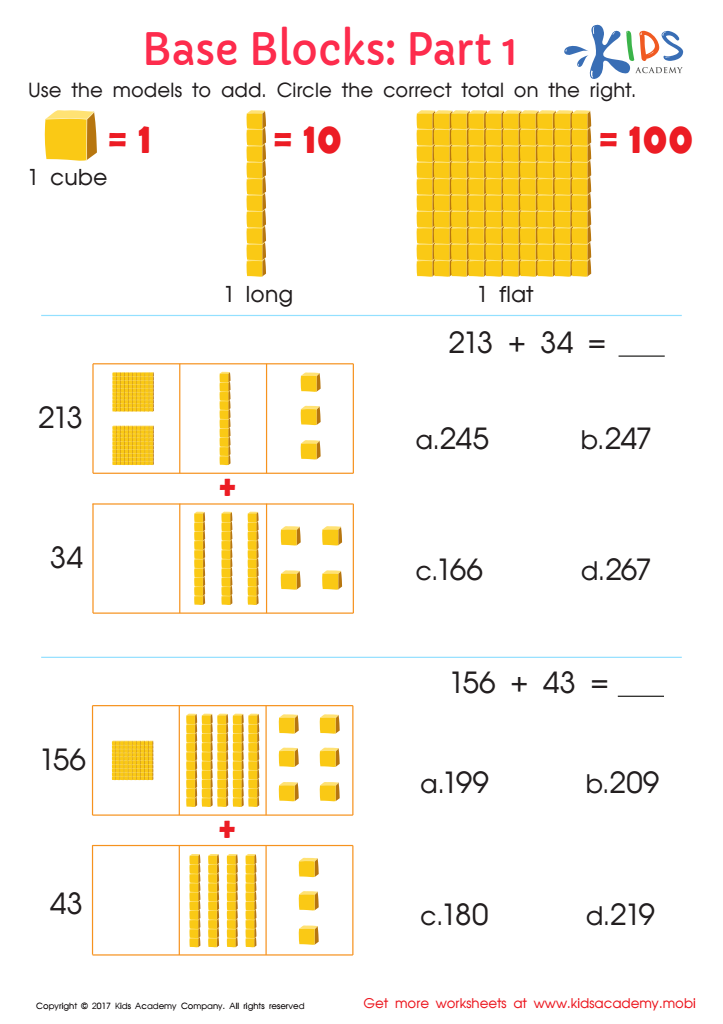

Base Ten Blocks Worksheet: Part 1
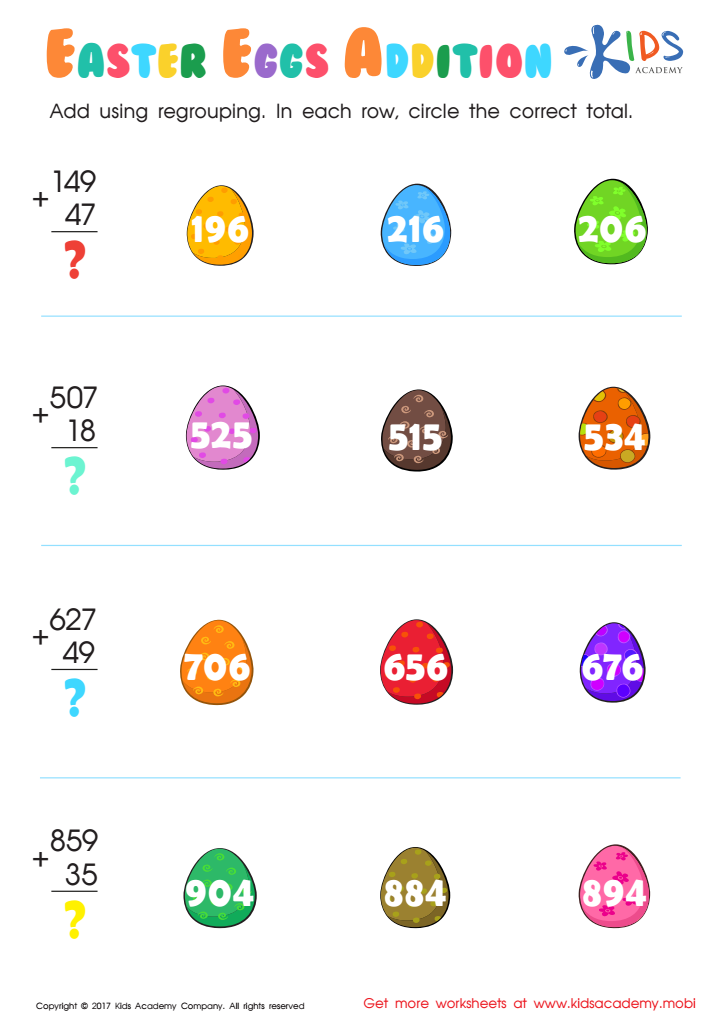

Addition with Regrouping Worksheet


7 Continents and 7 Seas Worksheet
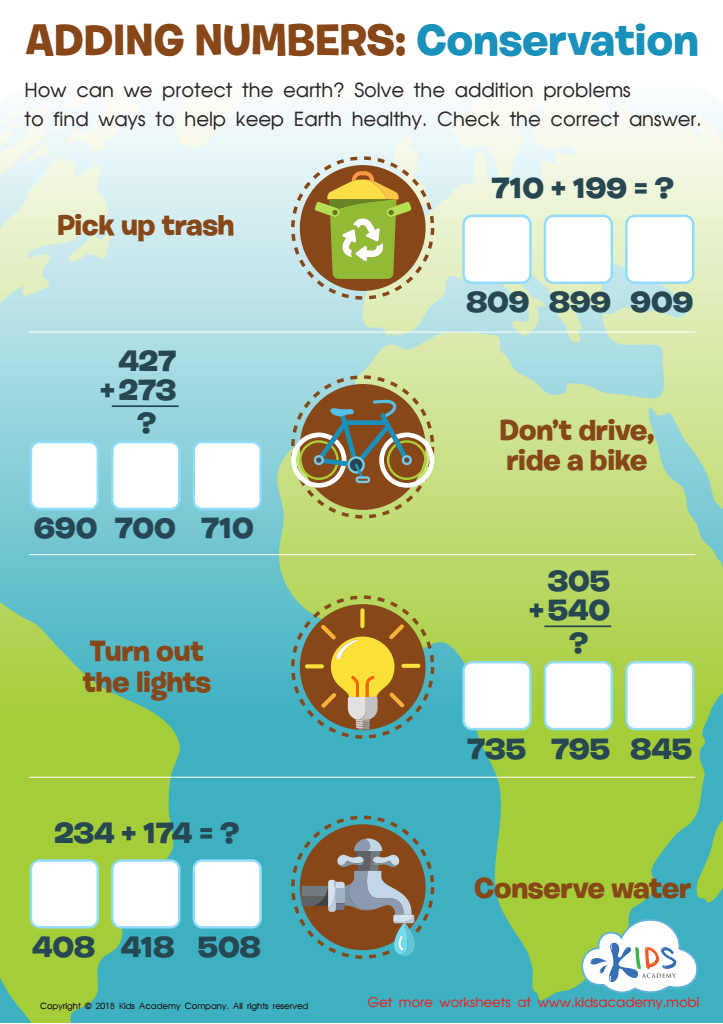

Adding Numbers: Conservation Worksheet


Adding Flower Petals Worksheet
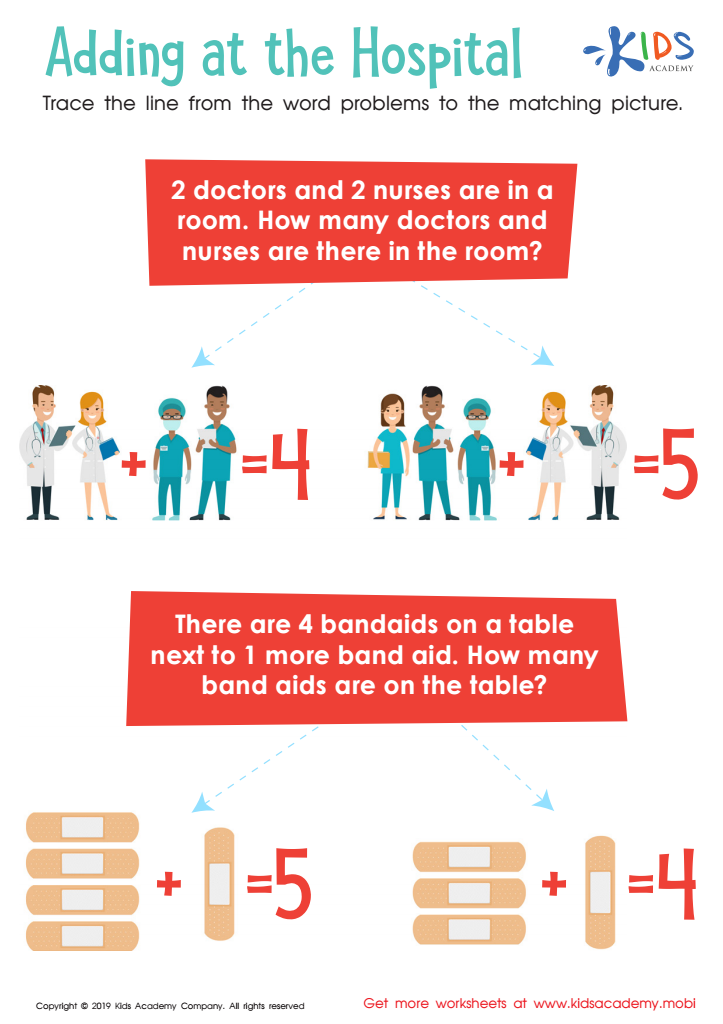

Adding at the Hospital Worksheet
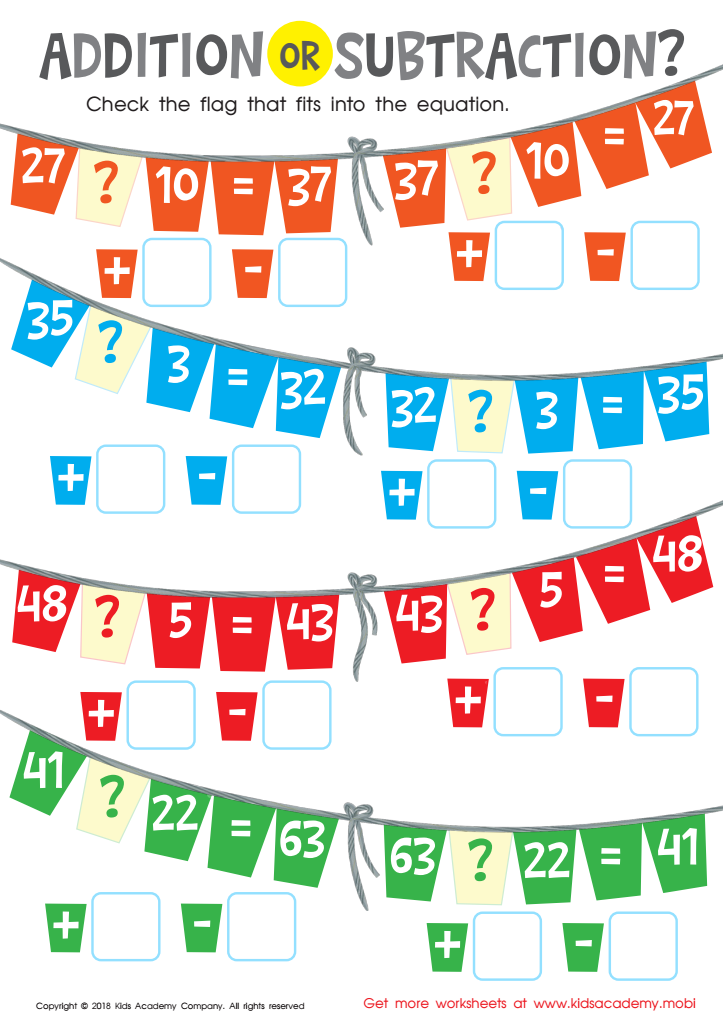

Addition or Subtraction? Worksheet
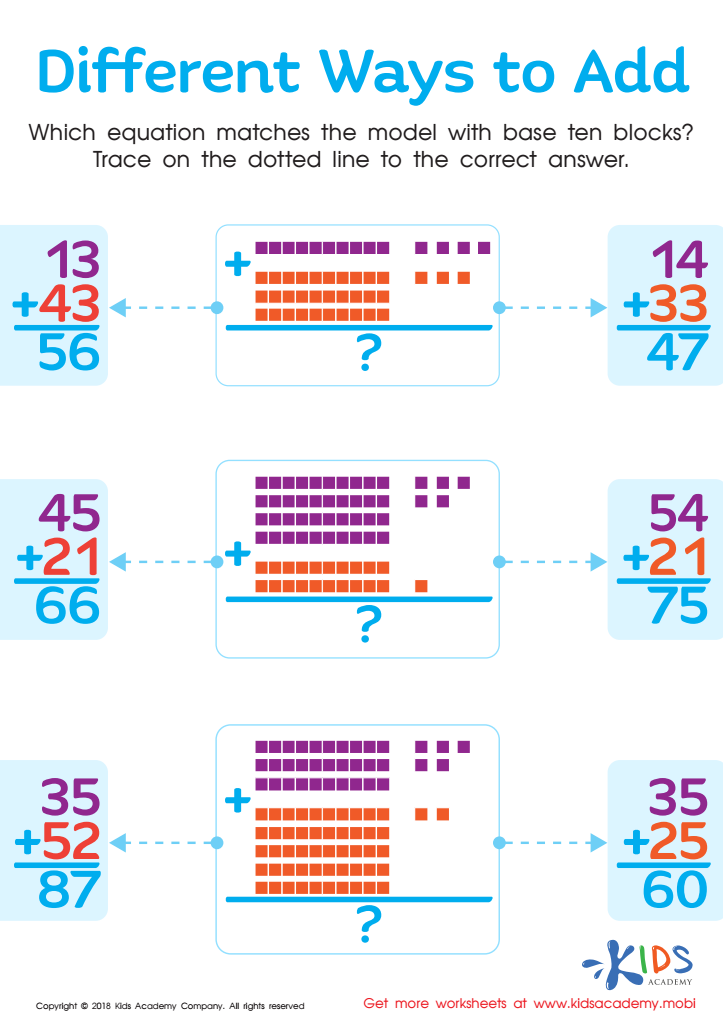

Different Ways to Add Worksheet
Parents and teachers should prioritize addition skills for children aged 5-9 because these foundational skills are essential for overall mathematical comprehension and future academic success. Mastery of normal addition not only enhances arithmetic proficiency but also builds confidence in young learners. At this developmental stage, children are learning to understand numbers, recognize patterns, and solve problems, all of which are critical for their cognitive development.
Furthermore, addition serves as a gateway to more complex mathematical concepts, such as subtraction, multiplication, and division. Early mastery allows children to tackle these subjects with ease. Developing strong addition skills fosters logical reasoning, promotes critical thinking, and encourages perseverance in facing challenges, which are valuable attributes in all areas of life.
In addition, engaging children in fun and interactive practices of addition can make learning enjoyable. Positive experiences with math can reduce anxiety and open the door to more exploration in STEM fields. Supporting children in acquiring these skills through games, stories, and hands-on activities not only strengthens their mathematical foundation but also nurtures a lifelong love for learning. Ultimately, prioritizing normal addition skills at this age has profound implications for traditional learning and equips children with the tools they need for future success.
 Assign to My Students
Assign to My Students









